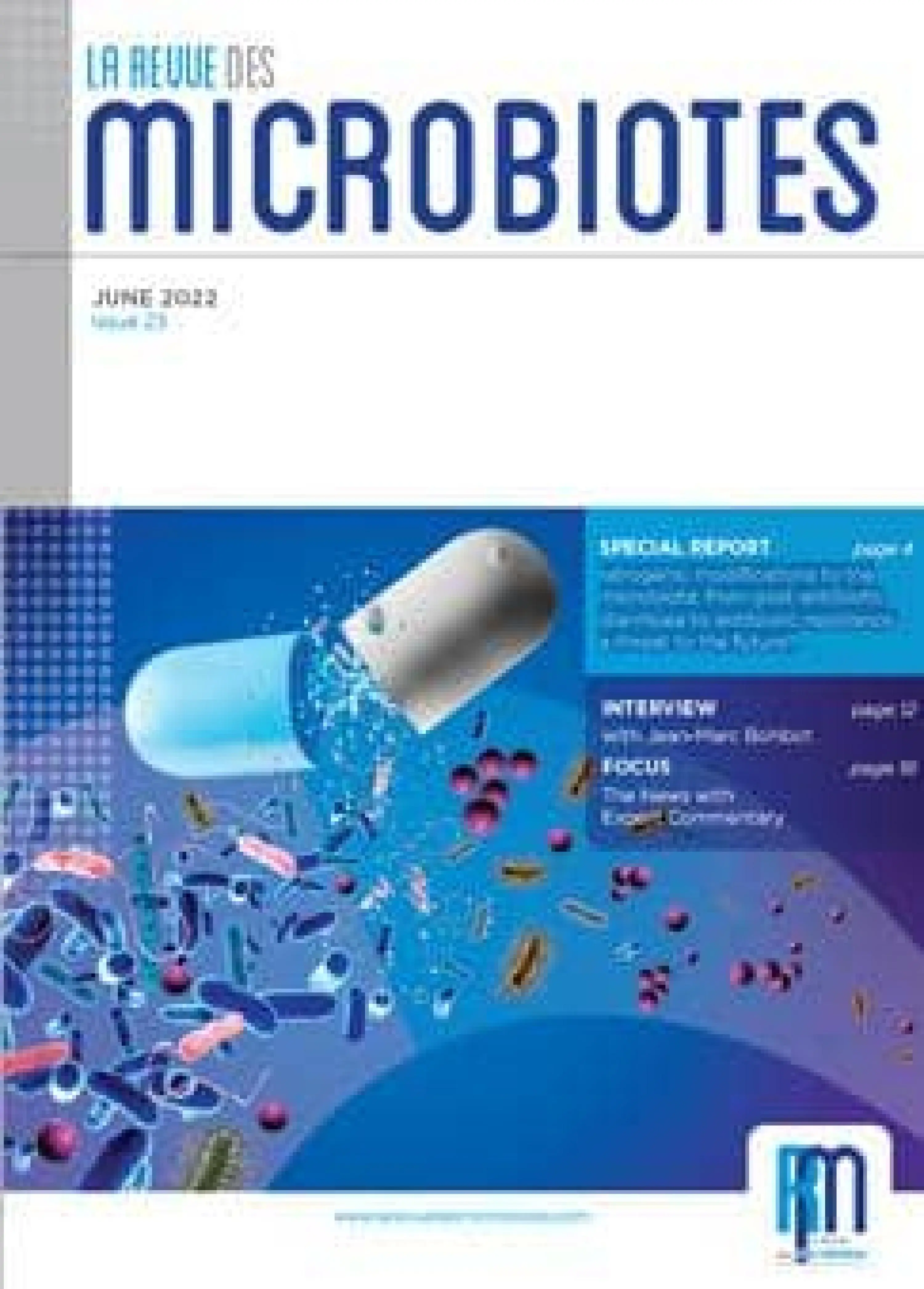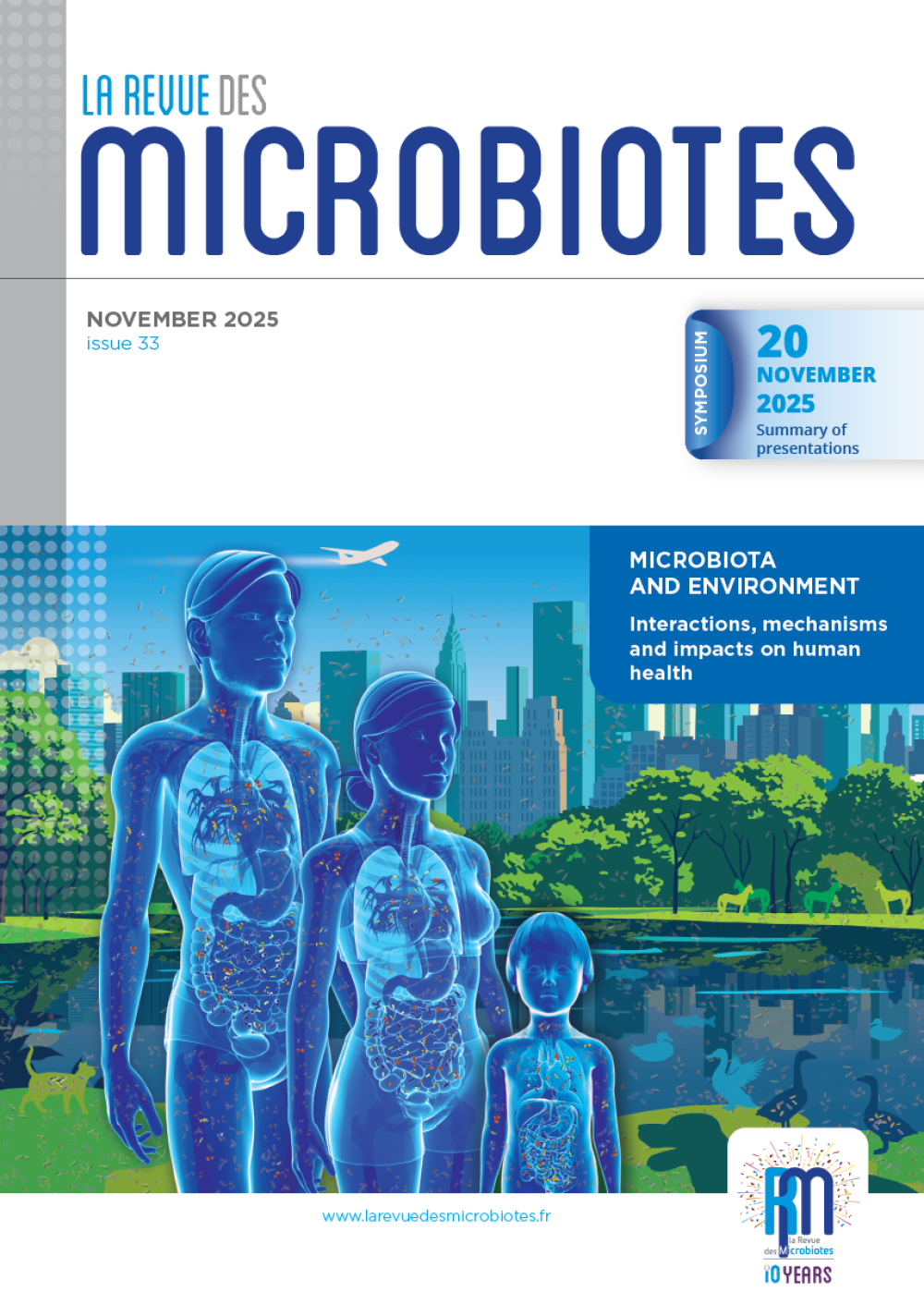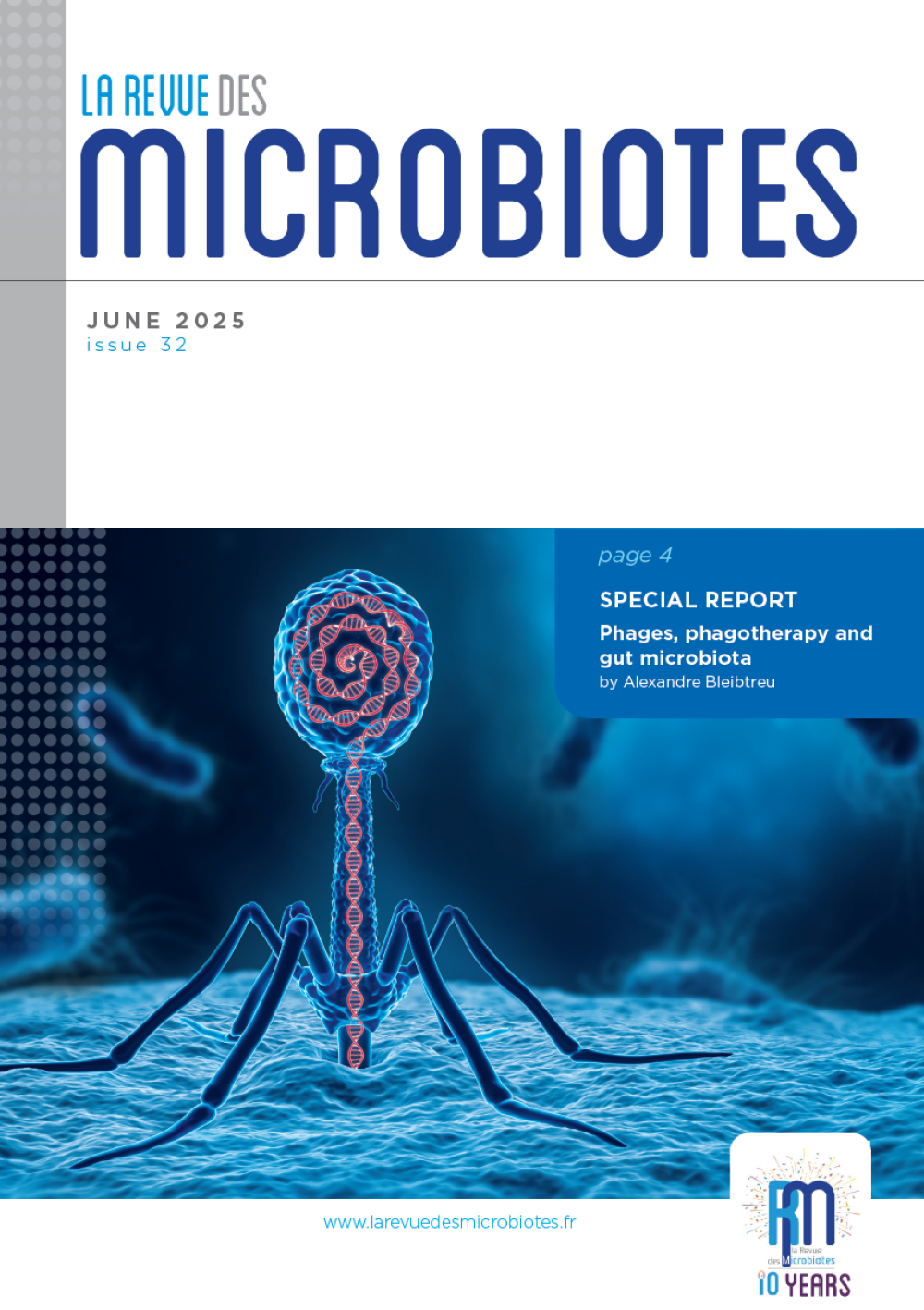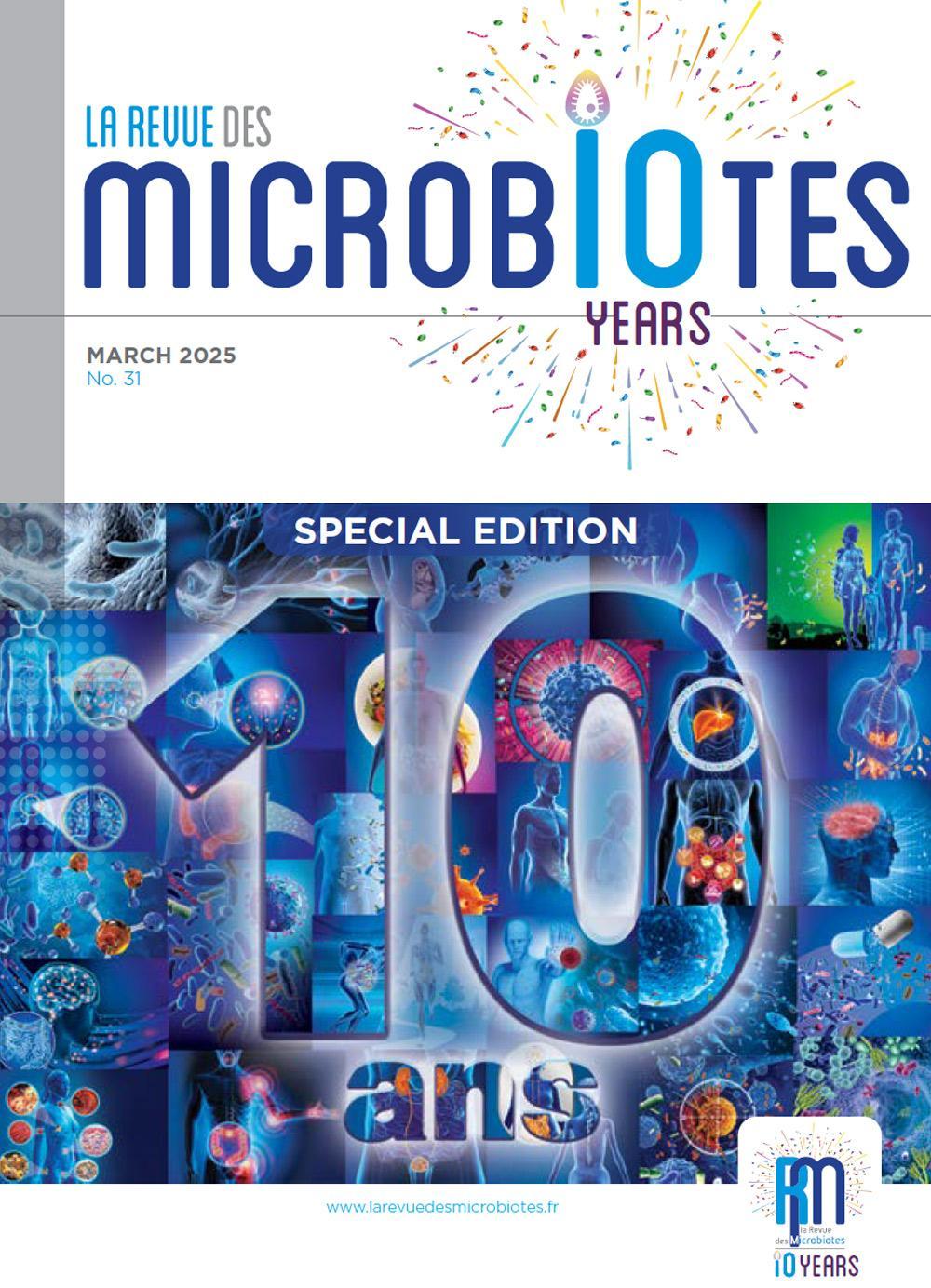Our microbiotes are our best allies; protecting them helps preserve our health. This is the teaching of microbiota science year on year, increasing our millennia-long awareness of both the usefulness and frailty of our "flora”. Paradoxically though, antibiotic consumption remains high and health authorities are issuing warnings over rampant antibiotic resistance, a sort of silent pandemic, a true ticking time bomb. The figures recently published in the Lancet1 are unnerving, with antibiotic resistance now being one of the world's leading causes of mortality, on a scale at least as large as that of major diseases such as HIV and malaria.
In this new special report of La Revue des Microbiotes, we attempt to explain how medical iatrogenesis manifests itself in the gut microbiota. About 20% of patients taking antibiotics develop diarrhoea. It is well known that the basis for this phenomenon is a change in the composition and functioning of the microbiota, following a reduction in species diversity and the associated loss of functionality. The diversity and resilience of the gut microbiota is crucial for the proper functioning of the gut, especially in the latter years of life.
More surprisingly, we will also see that antibiotics are not the only therapeutic classes that can be harmful to the microbiota.
The interview with Dr Jean-Marc Bohbot, a specialist in the vaginal microbiota, sheds very relevant additional light on antibiotic therapy in women, many of whom experience adverse effects on the genital area.
All reasons to limit the use of antibiotics or to act prophylactically whenever possible. Studies show the value of fermented foods and probiotics as a means of protecting the gut microbiota's diversity and optimising its resilience. Alternatives to antibiotics do exist, such as phage therapy or faecal microbiota transplantation for Clostridioides difficilee infections. Moreover, technological innovations, based on CRISPR-Cas for example, are being developed to counteract the harmful impact of antibiotics on the microbiota. A challenging future lies ahead.
I hope you enjoy reading this issue.
Geneviève Héry-Arnaud and Bruno Pot
Editors in Chief of this issue














